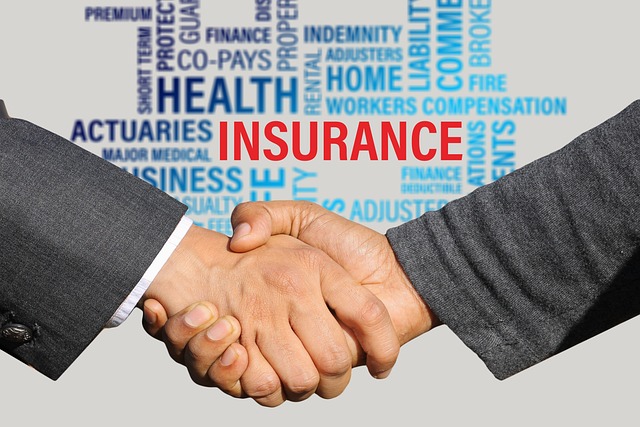Top General Liability Insurance Options for Small Businesses

An example of a contingency risk in an accidental injury lawsuit is that a small business could be financially drained. Business liability insurance or general liability insurance shields your business against claims arising from accidents in your business, damage to the property of third parties or clients, and other related legal claims including slander or libel.
Best General Liability Insurance for Small Business
Allstate
Allstate is well known for company insurance; however, it also provides home and auto insurance, business insurance, and general liability insurance. It needs to be mentioned that the company has a remarkably low value of complaints in the sphere of commercial liability insurance. Thus, an Allstate agent will help you choose the right liability insurance that will suit your business.
Pros:
- Sells commercial general liability insurance for numerous professions for instance retail shops, florists, and real estate agents, electricians among others.
- Covers home-based small businesses running their business from home.
- The website has convenient lists of suggested coverage types depending on the sectors’ requirements.
Cons:
- It is important to note that you cannot file your claims through the website but have to contact Allstate to report your general liability claim.
CNA
CNA is amazing due to its versatility with more than 300 kinds of coverages to provide your business with protection against certain hazards. It does this while offering a remarkably cheap price that makes it ideal for establishments in need of access to a broad policy coverage range that meets individual enterprise requirements.
Pros:
- Serves various sectors such as retail, restaurant, construction, and technology.
- The CNA Connect Businessowners Policy provides general liability with property insurance and many other features such as computer and accounts receivable insurance.
Cons:
- There is no information about the quotes on the internet; for that reason, you should contact CNA to inquire about the quotes.
Farmers
Farmers should be marked as a serious contender for general liability insurance since it offers a great number of business insurance choices.
Pros:
- Grants access to MySafetyPoint A collection of workplace safety videos and loss control papers for business insurance clients.
- This site offers useful information, which may describe different types of coverage.
Cons:
- Liability coverage is not offered in all the states.
- Unfortunately, on the Farmers website, you can initiate the quote process but once you provide your information, you are redirected to a Farmers insurance agent and not given an instant quote.
Frankenmuth
Frankenmuth stands high on our list because of the special business insurance solutions covering different fields such as retail, manufacturing, or small offices.
Pros:
- Serves a wide spectrum of industries, manufacturers, construction companies, retailers, professionals, and wholesalers.
Cons:
- General liability insurance is not offered in several stations.
- Individual quotes for general liability insurance cannot be received over the Internet.
The Hanover
The Hanover is well suited to a cross-section of businesses when it comes to insurance with the firm having a sound complaint history.
Pros:
- Links to an online library consisting of articles and videos designed to offer advice or to explain elements of small business insurance.
Cons:
- Unfortunately, online quotation is not given; you have to get a quotation from an agent.
What is General Liability Insurance and How does it operate?
The part of insurance important for a small business is general liability insurance which helps business owners address the risks connected with accidental personal injuries and property damage to third parties. This insurance also includes other problems, including advertising injury, piracy, and harm to one’s standing.
It becomes possible mostly through your business’s products, services, or operations claims. When general liability insurance is lacking, small businesses tremble under the costs since they can be made to shut down their businesses completely.
Also known as ‘’business liability insurance’’ or ‘’ commercial general liability insurance’’ this policy takes effect when there is a claim against your business for problems such as those mentioned above. If the claim is proven valid your general liability policy will enable you to settle such claims within your policy limit. When purchasing a policy, it’s important to understand the two main types of coverage limits:
- Per-Occurrence Limit: This is the highest level that your insurer is willing to go to in case of a single event. For example, if your limit of liability per occurrence is one million dollars then that is the maximum amount you will pay for an occurrence.
- Aggregate Limit: This is the highest figure on which your benefactor will pay over your entire policy period for all the claims. For instance, if your aggregate limit is two million USD, your insurer cannot pay a sum of more than two million USD, even if many claims have been filed against you within the policy period.
General Liability Insurance: What It Covers
General liability insurance covers a wide array of problems involving personal injuries as well as property of other people, and legal actions in response to such claims as libel or slander.
- Bodily Injury: In addition, general liability insurance will come in handy if your business is legally responsible for an accident that results in an injury to a person; it will pay for the injured person’s expenses, and legal fees if you are taken to court. For example, if a customer falls on an object while in your store, then your policy comes in to cover any expenses.
- Property Damage: If your business inadvertently caused harm to another person’s property, your general liability insurance will cover the cost of any necessary repairs or replacement, and legal processes in case of litigation. For instance, if an employee is careless enough to cause damage to a client’s furniture, then the insurance pays for all the costs associated with the damage.
- Advertising Injury: It shields from legal costs that concern claims that your business has libeled another person or organization.
- Copyright Infringement: This aspect of coverage provides for legal defense if you are alleged to have used someone else’s work for business promotions without their authorization.
- Reputational Harm: It involves legal expenses in connection with libel suits, slander, invasion of privacy, wrongful ejectment, and malicious prosecution.
What Does General Liability Exclusionary Form Mean?
Although general liability insurance provides a wide range of protection for businesses it is not without its drawbacks. Some of the occurrences it does not include are: business automobile accidents, worker injuries and sicknesses, loss of business property, professional negligence, claims that go beyond the policy limits, and unlawful acts by you or your employees.
For these specific scenarios, you will need to consider other types of business insurance, including:
- Employee Injuries and Illnesses: What is required to address employee-related injuries is the worker’s compensation insurance.
- Auto Accidents: In businesses involving the use of automobiles, a commercial auto insurance policy will see you shielded in any auto-related accidents. For use of a private or hired car for business purposes a hired or non-owned auto insurance is provided.
- Professional Mistakes: Management liability insurance provides coverage from losses that result from management failure in exercising their duties in rendering your professional services. It is also referred to as professional indemnity insurance because it insures against claims from a professional’s peers as well as clients.
- Theft and Damage to Business Property: General liability insurance will not cover the loss of your business equipment or property through theft or loss. For that, what you need is a commercial property insurance policy.
General liability insurance explained: how much does it cost?
Research from Insureon shows that the average monthly premium cost for general liability insurance stands at $42, which means a $504 annual premium. Yet, many small businesses will discover that their expenses are less than this figure. Indeed, 29% of small business customers at Insureon have a monthly premium below $30. Still, 41% spend $30-$60 per month, and 30% spend more than $60 per month.
Several factors influence your general liability insurance costs, including:
- Type of Business: Companies in high-risk industries pay a higher premium than those in low-risk industries, for example, construction companies pay more than graphic design companies.
- Years of Experience: This also means that their years of practice in their line of business will determine their insurance premium. Sometimes, this comes combined with having more experience, in which case you have lower premiums.
- Location: Your premiums may thus be lower than those of businesses belonging to your industrial category depending on whether your business is located in a low-risk area in terms of crime rates or probably a business which is located in an area where there is low traffic density.
- Insurance Claims History: Multiple claims with insurance increase one’s premiums of general liability insurance.
- Coverage Amount: You also have to know that the total coverage limit that you go for will in one way or another determine the price quote of your premium. When the annual coverage limit is higher, usually the costs are on the higher side as well.
Examples of General Liability Insurance Costs by Industry
The variation of the average monthly cost of general liability insurance is likely to change with the industry. Here are some examples:
| Industry | Average Monthly Cost |
|---|---|
| Photo and Video | $28 |
| Consulting | $29 |
| Finance and Accounting | $29 |
| Media and Advertising | $29 |
| Professional Services | $29 |
| IT/Technology | $30 |
| Personal Care | $32 |
| Real Estate | $32 |
| Building Design | $35 |
| Food and Beverage | $42 |
Things to Consider when Buying General Liability Insurance
Choosing the right general liability policy for any small business should take into account several specific conditions. Here are some essential points to keep in mind while shopping for your policy:
- Determine Coverage Needs: Determine how much general liability you need to determine. Obtaining quotes for policies that offer limits based on your operations is important, therefore looking at both per-occurrence and aggregate limits.
- Budget for Premiums: Remember that the prices you’ve been given are not the final prices since you need to pay an amount of money to avail of the insurance. Just as you would prefer not to miss any gym sessions, ensure you are in a position to easily pay the amount that is charged either yearly or monthly for your policy premium.
- Review Financial Stability Ratings: It is important when getting bids for general liability insurance, that you include checking the financial strength of the insurance company through the rating given by agencies such as AM Best. This information may help you to more fully understand how reliable the insurer is in his ability to pay claims.



Fantastic read! I really enjoyed every part of this article.
Great work Bro! keep doing that